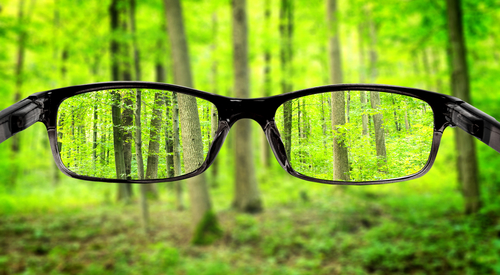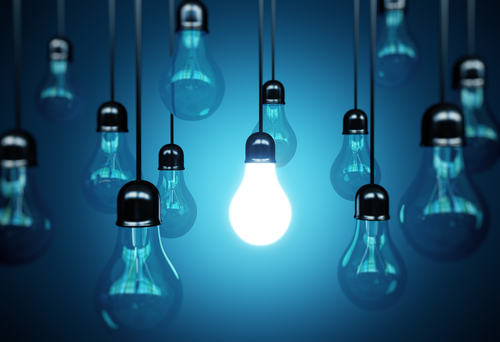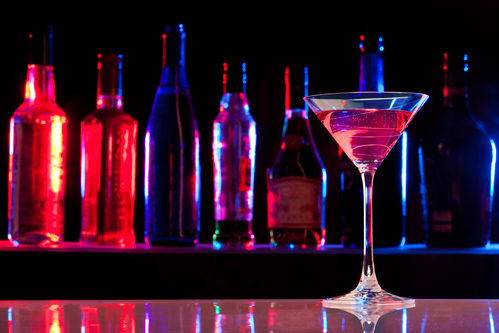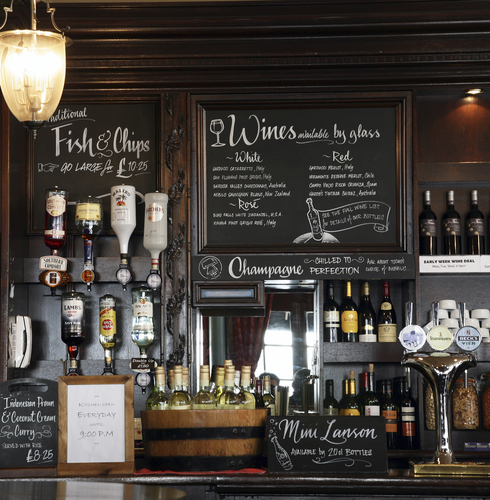I was 17 the first time I got drunk. K*’s parents were out of town and we threw a huge party at his house. It was awesome. Since then, I’ve spent at least one month each year sober to ensure that the habit is in check (alcoholism runs in my family).
In 2015 decided to take on a new personal challenge: go the entire year without having a single drink. I would still go to bars, parties, bachelor weekends, etc. I just wouldn’t drink.
There are plenty of things you can expect to happen when you quit drinking (your sleep and health improve, you don’t see your drinking buddies so often, etc.). Those are well covered in other articles around the internet. Here, I’m going to share what surprised me about the year of sobriety – both the good and the bad.
5 things about sobriety that surprised me…

1) I wasn’t perfect. This helped me become more forgiving of myself and others. I approached this challenge in the same way I approach pretty much everything in life: I expect to be perfect (which of course, is delusional).
There were six times in 2015 when I chose to have a drink. So technically, I failed the challenge. Being forced to own my imperfections created an opportunity for growth.
My first reaction to not living up to expectations is to beat myself up. With the help of a mentor, I used this as an opportunity to practice self-forgiveness, instead of self-punishment. It helped me accept the reality that making mistakes and being imperfect is no big deal. In fact, it’s completely human.
I’ve found that by being more forgiving of myself, it’s much easier to be forgiving of others.
2) Three people went out of their way to make me feel bad about the year of sobriety. I’m used to making decisions that most people don’t understand, but none have been as controversial as giving up alcohol for a year. In fact, several friends went out of their way to make me feel bad about it.
- One guy called from France to tell me he felt sorry for me. He felt that I was making a real mistake in depriving myself of the “Joys of alcohol” and that I should seriously reconsider.
- Another friend of 15 years emailed me saying it was a stupid experiment and that I was setting a bad example for my readers and audiences. He also cc’ed our mutual friends on the email. No one responded.
- A woman I was dating during part of the experiment yelled at me because she felt I was neglecting her desire to go out and have fun with the people she loved. When I reassured her I’d still go to bars and parties, she said it wasn’t the same and stormed off. To be fair, she’s not actually wrong, and I’ll share more on that later.
While those were the only three instances where people went out of their way to be discouraging, few people in my life put any real effort into understanding why I’d bother giving up booze for a year.
The default attitude towards drinking is that everyone drinks. If you don’t drink, it’s either because of your religion or you’re in recovery.
This challenge put me in the blue unicorn category. I had no reason not to drink, beyond curiosity, growth, and a hunch that my life would be significantly better without booze.
Because of my unusual choice few people understood what I was doing.

3) During the year of sobriety, a long term girlfriend and I broke up. Sobriety magnified the pain and then sped up the healing. Normally after a breakup, I would mourn the loss by going to the bar for a few (or rather, a few too many) drinks.
In 2015, this wasn’t an option. By staying completely sober through the breakup, I was forced to confront my pain head on. This created moments of intense, intense pain. It also sped up the healing process.
The loss of love is one of the most painful things people endure. To avoid the pain, we use a wide variety of tools to distract ourselves (alcohol, casual sex, staying busy, pretending like we’re not hurt, etc.). While avoidance seems like a good idea in the moment, it’s ultimately an exercise in futility. In time, you will be forced to confront the inner struggles you’ve been suppressing.
Alcohol numbs. Take it away and suddenly, the highs are higher, and the lows are lower. The lows don’t last as long, because you’re forced to come up with new, more effective ways of mitigating the pain.
My advice to anyone going through a breakup (or any difficult spell) is to feel the full pain of your loss, instead of numbing yourself. Experiencing your pain will help you bounce back faster.
A note about dealing with intense pain: one of my commitments to you is to be realistic. So often, writers babble on about how everyone should be perfect. Fuck that. We’re humans, not robots. My advice is to stay sober and clear during intense pain. However, if anyone – my future self included – uses alcohol or any other fairly safe form of escape to weather a storm or two, I will not fault you.
4) Sobriety made dating easier. When was the last time you had a first kiss without alcohol?
Before the year of sobriety, I was probably 17. Maybe younger.
Alcohol is a nearly permanent fixture of the dating scene. At first, the year of sobriety made dating – especially first kisses – intimidating.
After a few sober first dates though, something weird happened: dating became easier than it had ever been.
It’s easier to get to know someone when you’re sober than when you’re buzzed. It’s also easier to sense chemistry (as opposed to lust or the need to alleviate loneliness) when you’re sober.
A common question I get from friends is, “How do women react to your decision not to drink?” Most respond neutrally. Generally they have a few questions. That’s it. I’m sure that there are women who wouldn’t date me because I don’t drink; I’m probably not interested in them either, so nothing is lost.
5) I was reminded that the strongest form of leadership is leading by example. Before the year of sobriety began, I wrote a Facebook post about what I was attempting and why I was doing it. I invited people to join me.
Several friends decided to give up alcohol for the year, and dozens of people committed to spending at least one month sober.
Ultimately, this reminded me that persuasion is a waste of time compared to the efficiency of living out loud.
The unexpected benefits
I saved thousands of dollars. Alcohol adds up. I was accustomed to paying $30 for a round, $15 for a bottle of wine, and $5 for a beer.
Individually, none of those purchases are particularly expensive. Collectively, they emptied out my wallet.
If you’re in the habit of spending $50/week on alcohol (and I suspect that a lot of people are, even though they don’t realize it), you pay $2,600 annually for booze. That’s a good chunk of change that could easily be put towards something else (debt, travel, starting a business all, etc.).
I stopped running in existential circles. Most of our actions are the result of habits. Some are obvious: wake up, make coffee, brush your teeth, check your email. Others are subtle: you’re bored or uncomfortable, so you take out your phone and check Facebook, reddit, and twitter.
For me, drinking was a habit. I’d have a drink after a speech to wind down. When I went out for dinner, I’d order a beer. Most Fridays, I went to happy hour with friends.
When I stopped drinking, my habits changed automatically. I started going for long walks after speeches. I ordered water or juice at restaurants. I convinced my friends to play Frisbee after work on Fridays.
The habit of drinking becomes a hole that many people fall into on a routine basis. For most, it takes up valuable space in your life subtly reinforcing the bad habits. When you stop drinking, you eliminate one of the holes on your path, and encourage growth.
I started stringing multiple good days together. For most of my life, I would have two or three good days in a row, followed by a crappy one. I spent a lot of time trying to figure out how to have more good days without the bad ones, but I could never find a solution. When I quit drinking, it happened automatically.
It became easy to string more good days together because of the space sobriety created in in my life. I had more money, more time, and more energy at my disposal.
Are all of the days in my life great now? Of course not, but I’m having far more good ones than in the past.
The downsides
Even the most positive changes have some negative side effects. To ignore the negative is to dismiss reality.
I felt left out. There were a few times when my friends were doing wine tastings or having craft cocktails where I just felt left out and lonely.
While I’m glad I consistently said, “No” in 2015, moving forward I’ll say, “Yes” a bit more often now that the challenge is over (more on that in a moment).
Not drinking makes some people who drink uncomfortable. I mentioned earlier that an ex-girlfriend and I had a fight over my choice to give up drinking. She said going out wouldn’t be the same if I was drinking seltzer and she was drinking whiskey. She was right. We were no longer sharing the experience as closely as when we were both drinking or both sober. This made her uncomfortable. Honestly, she wasn’t the only one.
I know this may be discouraging but if you choose not to drink, it will make some people uncomfortable. Inspiring discomfort in some people takes a bit of getting used to, but eventually you realize that their discomfort is their problem, not yours.
My recommendation to you…

If you’re interested in experimenting with sobriety, here is what I suggest.
First and foremost: have all the drunken nights you think you want to have. Seriously. If you feel pulled towards going out and getting drunk, do it. Lord knows I’ve had plenty of drunken nights in my life, and if I’m being completely honest, I can think of a few nights that were wayyyy better because I was drunk. I’m glad I got it out of my system.
It would be sad to die feeling as though you missed out on something fun. If drinking feels important to you, go for it. Alcohol itself is amoral. Your actions while drinking is where right or wrong comes into play. As long as you’re responsible to yourself and others, there’s no need to deprive yourself.
Over time, reflect on your experience. You’ll notice that after a certain number of nights out, you’ve already had every alcohol experience that there is (or at least all of the ones you want to). They are:
- The night you hooked up with someone
- The night you did something crazy
- The night you had tons of fun
- The night you were more vulnerable and open than usual
- The night you spent wayyyy too much money
- The night you were alone and lonely
- The night you drank to numb the pain
- The night nothing much happened
- The night you did something you regret
- The night something bad happened
- The morning after where you swear, “I’m never drinking again.”
That’s about it. Once you’ve done all of the above, you’ve had 90% of all drinking experiences. Maybe more. Of course, most people will go on to repeat the same nights again and again and again (I did), but eventually, you’ll realize that you have to get off the hamster wheel if you want to move forward.
If you’re a regular drinker, consider taking one month off every now and then. Why? To make sure you are in control of your intake and to see how it’s affecting you.
Alcohol is an addictive drug that influences who you are, even if you’re not an alcoholic. Because drinking is so common, most people lose sight of how it affects them.
Some months are much easier to spend sober than others. January is probably the easiest.
If you’re saying to yourself, “I can do a month, but I won’t,” then check yourself. Become curious about why you’re so dead set on drinking that you can’t go 30 days without a drop. Are you running from yourself? Have you made a hobby out of something toxic? Is it because alcohol plays such a large role in your life that you fear its absence? Do you depend on it for socializing or relaxing? Are you worried about what other people will think?
If you’re saying to yourself, “I can’t take a month off,” then that’s great information. I admire your honesty. Most people don’t have the courage to admit that. Please get the help you need. You’re an amazing person deserving of an amazing life.
Want to take more than one month off or reduce your consumption in general? Here are a few approaches to tapering your consumption. Experiment with the ones that seem right for you:
- Limit your consumption to a specific number of drinks per week (or night)
- Stop doing shots
- Stop drinking liquor
- Only drink on the weekends
- Only drink on special occasions
- Only drink on extremely special occasions (that’s where I’m at)
- Stop drinking altogether
So, will I start drinking socially again?

My friends keep asking, “So now that the year of sobriety is over are you going to start drinking again?”
My answer: not really.
On very special occasions, I can see having a drink from time to time. I wouldn’t say, “No,” to a Guinness in Ireland or a Tequila shot in Mexico. I’d raise a flute of champagne at a wedding. I’d definitely have a few scotches at my brother’s bachelor party.
But in the grand scheme of things, no, I’ll never go back to drinking socially like I used to. The benefits of being 99.97% sober are so significant for me that I’m happy to pass.
My wish for you is that you take the time to find the relationship to alcohol that helps you be the best version of yourself.
Since getting more alignment in my life I feel the need to drink less and less. I’m always intrigued by how it triggers other people. I have a similar point of view which is that I’m not saying I’ll never drink it’s just not that important to me anymore. If I wonder into the kitchen at night i’m drawn to a cup of tea before a beer or anything else.
Great article.
Thanks, Tim, and well said. It’s funny when other people take your behavior as commentary on who they are as an individual.
Nice post. Love the insights here, Jason, especially about the how the feeling dynamics change so much. The triggers are odd. In college I used to spend 10 months of each year sober. Same pattern every year. Friends consistently pressured me to drink, but I didn’t. The only excuse they ever accepted was pregnancy. Then I didn’t drink at all for 7 years, and only on rare occasions since. Never been a coffee drinker either, and had the same triggers show up about that. Now, decades later, they’re all switching to green tea! ha
Thanks, Jade. Now that they’re all switching over to green tea, you should start drinking like most people do in college to see how they react. 🙂
Just playing, of course. If you have the courage to leave the beaten path, it can be legit hard, especially when people don’t understand/support what you’re doing. I’m impressed by 10 out 12 months sober during college. I always spent a month of college sober, and without fail that was the month that I was offered the most drinks.
Another item to add to the list of benefits is not having to worry about transportation after a night out. Having severely cut back on my drinking (including a streak of six months fully sober) it’s great being able to drive to a concert/bar and not worry afterwards if the train is closed or Uber is surging.
Wow. Six months is great, congrats Garrett. A lot of people wont even attempt one month. Well said about the transpo. It makes taking care of your own logistics much easier. It’s also been nice for me to be an automatic dd for my friends when we go out. It also makes my decision to abstain a bit easier for them to accept (which, with my real friends, has never been an issue).
Hi Jason, I’m 28 and I’ve never tasted alcohol. I have always considered drinking as very hyped and never felt the need or urge to try it. But recently I have been feeling like I’m missing out on something. And to be honest, I felt that way after meeting a girl who drinks. We’ve hung out few times as friends. Though she seemed okay about it, I feel that she found me a bit weird not to give it even a try. Now, I feel like I should definitely try and find out if I like drinking. And, if I happen to be regular, I’ll definitely keep this article in mind 🙂
Manthan – this is great. I’m a HUGE fan of people living while they’re alive. A very real part of that, is trying new things and allowing yourself to be less than perfect with your habits and decisions. So, strange as it may sound, I’m psyched for you. Go have a drink! If you don’t like it, then you’ve learned. If you do like it, then there’s nothing wrong with doing something you enjoy every now and then. Just stay centered in your direct experience, and if you feel yourself starting to go overboard, slow back down. Enjoy!
Great article.
I am trying to cut down due to regularly training at the gym and sick of missing workouts because my friend was visiting and we always end up drinking and I feel tired the next day and have to go to work.
I am trying to convince my friend that the gym is better than the bar and is far cheaper and you’ll feel better when you leave after a workout than drinking. He is keen on the idea and is looking to buy weights for indoors and I will try to get him to come with me to my local gym when he visits.
Thanks Vincent! I feel ya – the repercussions of moderate social drinking can be surprisingly significant (though I do believe there is a time and a place for it…). Good for you for cutting down AND getting one of your friends on board. That’s awesome. A few of my friends have done sobriety challenges or become more mindful of their consumption too – it’s such a cool side effect of living an authentic life. Keep it up man!
“The loss of love is one of the most painful things people endure. ” This is really insightful and appropriate for me. Great article.
David – thank you! I’m glad you found the article. 🙂 A lot of people I know find breakups as difficult, unwieldy, and painful as deaths.
I gave up drinking for 8 months last year. I think I have had every type of drinking experience too! More than once! Some days it was hard, some days it was easy. It got easier the longer I went on. I did it as an experiment to see how it made me feel and I had been feeling like I maybe drank a little too much. I think it helped improve my mental health a little and I felt a bit calmer and clearer in general, plus nights out were much cheaper!
Since drinking again I noticed that I was finding it hard to limit myself, and after a stressful period recently I had started drinking every night to numb myself, the whole time knowing I needed to stop. It’s been 3 weeks since I stopped again and I don’t know if I can go back to drinking even occasionally, as my mind seems to trick me and suddenly I’m back to drinking regularly again.
I was lucky to have people around me who were impressed and supportive when I gave up, and I”m glad I’ve stopped again.
I have also had friends in the past who thought it was a bad idea (when I gave up for a month) and couldn’t understand why I would want to give up. I do think people find it confronting when you tell them you don’t drink or have stopped, as if by choosing not to, you are somehow judging them for drinking. Thankfully I don’t really see those people anymore. I do think our society has a pretty messed up relationship with alcohol.
It’s always nice to hear other people’s stories of giving up 🙂
Suzanne –
I had a similar experience: giving up drinking was hard at first, and then once I got into the swing of it, much easier.
And I feel ya – one of the weird secrets of life that people don’t seem to discuss is that moderation is much MUCH harder than abstinence. With abstinence, you don’t have to make a decision at all. With moderation, you leap onto what can be a slipper slope.
And congrats on returning to sobriety!